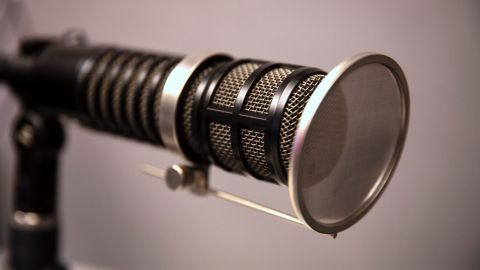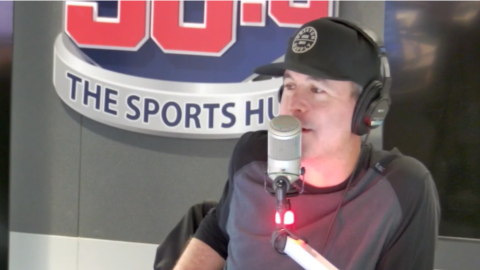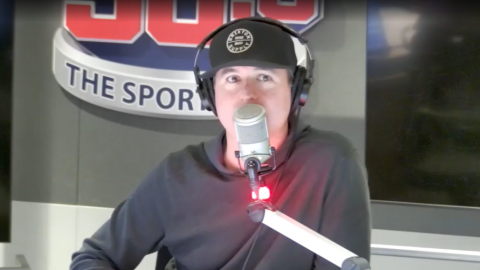In one month, we'll be granted a temporary reprieve from thinking about where the Patriots went wrong, wondering if Theo Epstein plans on playing third base himself or fretting over the state of Kevin Garnett's knee. That’s because the Winter Olympics are coming. And if there's a good reason to tune in and get excited, it's Olympic hockey.
Ever since the NHL started sending its biggest stars to represent their home countries in 1994's Winter Games in Lillehammer, Norway, the Olympics have served as a showcase for some of professional hockey's best players. However, because of various issues including injury concerns, NHL commissioner Gary Bettman has said the league won't commit to participating in future games beyond this February's version in Vancouver.
Bettman cites travel issues, the disruption of the NHL season and the impact on players, fans and schedules as the main reason that the NHL's partnership with Olympic hockey may be in jeopardy.
With that in mind, fans should watch as much 2010 Olympic hockey as possible because it may be their last chance to see the best of the best play on the biggest stage.
Goaltender Tim Thomas is the lone Bruin represented on Team USA (though former Bruin and current Maple Leaf Phil Kessel will also be playing for the red, white and blue). Thomas' Bruins teammates Zdeno Chara (Slovakia), Miroslav Satan (Slovakia), David Krejci (Czech Republic), Marco Sturm (Germany) and Patrice Bergeron (Canada) also will be playing for the pride of their respective countries.
Questions regarding injuries, particularly to Bergeron (possibly opening the way for Milan Lucic to get a spot on Canada's roster), might force changes, but the final rosters will be set on Feb. 15. Because the NHL boasts such a high concentration of foreign-born players (only four of the 24 players on the Bruins' roster are American), competition in these sorts of venues is always fierce.
Team Canada always proves a formidable opponent, and the current roster, featuring such NHL powerhouses as Jarome Iginla (Calgary), Sidney Crosby (Pittsburgh), Joe Thornton (San Jose) and Martin Brodeur (New Jersey) ensures stiff competition for any opponent. Since the NHL began sending its best to the Olympics, Team Canada has always been near the top of the list of favorites.
In 2002, the Canadian team won gold in Salt Lake City for the first time since 1952, but then followed that up with a disappointing seventh-place finish in Turin, Italy, in 2006. The current roster is well-stocked with incredible talent, and Team Canada will rely on a mix of experienced veterans (such as future Hall of Famer Brodeur) and talented young players to bring the gold back to the great white north.
Team USA's roster also looks to have a strong showing as general manager Brian Burke decided to focus on youth over experience. The Team USA roster includes just three players — Chris Drury (New York Rangers), Brian Rafalski (Detroit) and Jamie Langenbrunner (New Jersey) — with prior Olympic experience.
The Team USA roster doesn't boast as many well-known names as the more star-studded Team Canada, but Burke and head coach Ron Wilson are confident that the younger players will bring an intensity to the competition that will serve them well and put the team in good position for medal contention. Burke has even gone so far as to attempt to make connections to the famous 1980 USA squad and play up the underdog angle, claiming that his team isn't the favorite, but that they're "going there to win."
Other strong rosters include those from Slovakia, Sweden, Finland and Russia. Rosters from those four countries are all heavily weighted with NHL players, but also feature players from national professional teams. This could be either a boon or a bust to the team's chemistry. For instance, it remains to be seen how NHLers like Chara and Marian Hossa from the Red Wings can play alongside Ladislav Nagy and Branko Radivojevic of the Kontinental Hockey League (KHL), Eurasia's professional equivalent of the NHL.
Russia, long seen as the big, bad powerhouse of international hockey, looks to be a serious contender in the 2010 games as well, and many sites are listing the Russians as gold-medal favorites. With superstars like Evgeni Malkin (Pittsburgh), Ilya Kovalchuk (Atlanta) and the electric Alexander Ovechkin (Washington), the Russian team has every reason to go into the games with high expectations. Team USA and other competitors will likely seize on Russian cockiness to help stoke the competitive fire.
One downside to the NHL allowing its players to participate in the Olympics is the lack of possibility of a 1980 Miracle on Ice situation. While including professional players no doubt elevates the level of play and showcases the skill of some of the world's best players, it also diminishes the nationalistic pride created when a scrappy bunch of college kids and amateurs takes down a professional Russian juggernaut. Of course, if 2010 really is the final year of the NHL's participation in the Olympics — and with the 2014 Winter Games being held so far away in Sochi, Russia, that appears possible — the opportunity for a 1980-esque happening looms in future games.
Because of the unique situation that often puts a fan's favorite NHL players on competing teams during the Olympics, hockey fans of all sorts will find something to cheer for during the coming games. No matter where your allegiances lie or which country you're rooting for (or against), the two weeks in February when the world's best play for hockey gold is not to be missed. And if you need a little help getting yourself in the proper mindset or practicing your "U-S-A!" chants, Disney's Miracle is always available on Netflix.



